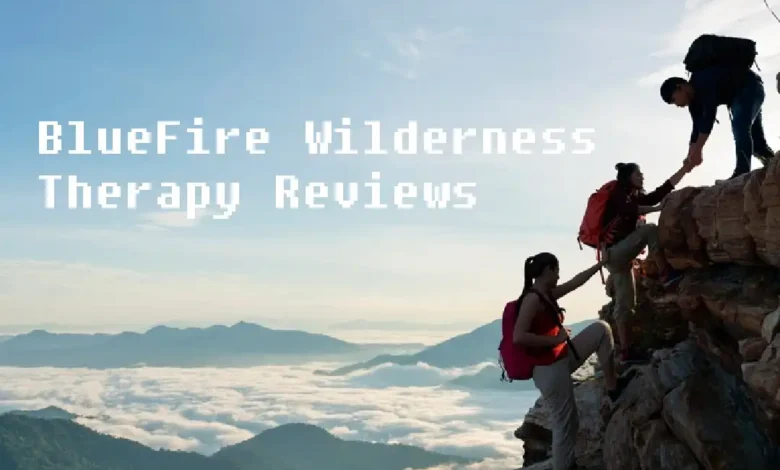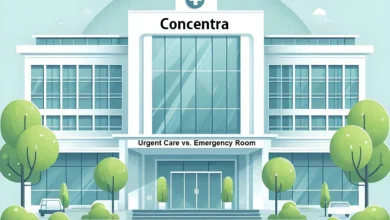
In today’s fast-paced, technology-driven world, many adolescents and young adults struggle with a myriad of behavioral, emotional, and psychological issues. The pressures of academic performance, social dynamics, and the constant influx of digital information can often exacerbate underlying mental health problems, leading to anxiety, depression, and other significant challenges. Traditional therapeutic approaches, while effective for many, sometimes fall short of addressing the unique needs of this demographic.
BlueFire Wilderness Therapy emerges as a beacon of hope for these individuals and their families, offering a unique blend of outdoor adventure and therapeutic intervention. Situated amidst the serene backdrop of nature, BlueFire provides a holistic environment where participants can disconnect from the chaos of everyday life and reconnect with themselves. This therapeutic program is not just about temporary relief; it aims to foster deep, lasting change by immersing participants in an environment that promotes resilience, self-discovery, and personal growth.
Parents Reviews
At BlueFire, the philosophy is rooted in the belief that nature has an unparalleled ability to heal. The wilderness setting strips away the distractions and superficialities of modern life, allowing participants to focus on their inner selves. Coupled with traditional therapeutic practices, this approach has garnered widespread acclaim from both teens and their parents. The program’s success stories are testament to its efficacy, with many participants reporting significant improvements in their mental health, behavior, and overall well-being. Our internet sleuths shortlisted some reviews about BlueFire Wilderness Therapy;
| Total Reviews | 136 |
| 5 Stars (Excellent) | 99% |
| 4 Stars (Very Good) | 1% |
| 3 Stars (Average) | Nil |
| 2 Stars (Poor) | Nil |
| 1 Stars (Terrible) | Nil |
Sarah, Mother – December 11, 2022
Fred, Father – November 3, 2022
Debbie, Parent – October 30, 2022
Christian, Parent – October 12, 2022
Kelly, Mother – September 22, 2022
Maria, Mother – September 16, 2022
We have shortlisted only some reviews for parent satisfaction, however you can click here to explore more reviews about BlueFire Wilderness Therapy.
Pros of BlueFire Wilderness Therapy: Review-Based
1. Holistic Approach
One of the standout features of BlueFire Wilderness Therapy is its holistic approach to treatment. The program addresses participants’ physical, emotional, and psychological needs through outdoor activities, therapeutic interventions, and academic support. This comprehensive approach ensures that teens receive well-rounded care that promotes long-term recovery and personal growth.
2. Expert Staff
BlueFire employs highly qualified professionals, including licensed therapists, outdoor educators, and medical staff. The expertise and dedication of the staff are frequently praised in reviews. Their ability to build trust and rapport with participants is key to the program’s success.
A parent mentioned, “The staff at BlueFire were exceptional. They genuinely cared about our son and were committed to helping him succeed. Their support made all the difference.”
3. Nature-Based Healing
The wilderness setting plays a significant role in the therapeutic process. Being immersed in nature allows teens to disconnect from the distractions of everyday life and focus on their healing journey. The natural environment also provides a calming backdrop that facilitates reflection and personal growth.
One participant reflected, “Being in nature was incredibly healing. It helped me clear my mind and think about what I really want in life. The outdoor activities were challenging, but they taught me resilience and perseverance.”
4. Family Involvement
BlueFire recognizes the importance of family in the healing process and actively involves parents and siblings through family therapy sessions and workshops. This focus on family dynamics helps ensure that the positive changes made during the program are supported and sustained at home.
A parent shared, “The family workshops were invaluable. We learned so much about our son and how to communicate better as a family. It brought us closer together.”
5. Personal Development
Participants in BlueFire Wilderness Therapy often emerge from the program with enhanced life skills. Their challenges and adventures in the wilderness help them develop problem-solving abilities, leadership skills, and a sense of responsibility. These skills are crucial for their transition back to everyday life.
A teen participant said, “I learned so much about myself and how to handle difficult situations. The skills I gained at BlueFire have helped me in school and with my relationships.”
Cons of BlueFire Wilderness Therapy: Review-Based
1. High Cost
One of the most significant drawbacks of BlueFire Wilderness Therapy is its cost. The program is expensive, and not all families have the financial means to afford it. While some insurance plans may cover part of the cost, many do not, leaving families to bear the financial burden.
A parent noted, “The program was a significant financial investment for our family. While it was worth it, we had to make many sacrifices to afford it.”
2. Physical Demands
The physical demands of the program can be challenging for some participants. The outdoor activities, while therapeutic, require a certain level of fitness and stamina. Teens who are not accustomed to physical exertion may find the program initially overwhelming.
A participant shared, “The hiking and camping were tough at first. I wasn’t used to that level of physical activity, but over time, I got stronger and more confident.”
3. Separation from Home
Being away from home for an extended period can be difficult for both teens and their families. The separation can be emotionally challenging, especially for those who have never been away from home for such a duration.
A parent commented, “It was hard not having our daughter at home for several weeks. We missed her terribly, but we knew it was for the best.”
4. Adjustment Period Post-Therapy
While many participants make significant progress during the program, adjusting to life after BlueFire can be challenging. The transition back to everyday life requires ongoing support and effort from both the teens and their families.
A parent observed, “Our son did great at BlueFire, but the first few weeks after he came home were tough. It took time for him to adjust to being back in a regular environment.”
Tips for Parents Considering BlueFire Wilderness Therapy
BlueFire Wilderness Therapy offers a path to healing and growth, helping teens and their families navigate their challenges and emerge stronger and more resilient. Here we have some tips for parents that can help both parents and teens.
- Thorough Research: Before committing to BlueFire Wilderness Therapy, it is essential to conduct thorough research. Parents should explore the program’s methodology, success rates, and the qualifications of the staff. Speaking with alumni families can provide valuable insights into what to expect.
- Financial Planning: Given the high cost of the program, financial planning is crucial. Parents should explore all available options, including insurance coverage, scholarships, and financing plans. It may also be helpful to discuss the financial commitment with a financial advisor.
- Prepare for Separation: Both teens and their families should be prepared for the emotional challenges of separation. Discussing these feelings openly and setting up regular communication schedules can help ease the transition.
- Post-Program Support: Planning for post-program support is vital. This can include continued therapy, support groups, and setting up routines that reinforce the positive changes made during the program. Parents should also consider their own needs for support during this transition.
Recommendations for Successful Participation
- Embrace the Process: Success in BlueFire Wilderness Therapy requires a willingness to embrace the process fully. Participants should approach the program with an open mind and a commitment to personal growth.
- Build a Support Network: Building a strong support network is crucial for both participants and their families. This network can include friends, extended family, and support groups. Having people to lean on during and after the program can make a significant difference.
- Focus on Communication: Effective communication is key to navigating the challenges of BlueFire Wilderness Therapy. Both teens and their families should prioritize open, honest communication throughout the program and beyond.
- Set Realistic Expectations: Setting realistic expectations is important for both teens and their families. While BlueFire can facilitate significant positive changes, it is not a quick fix. Understanding that progress takes time and effort can help manage expectations and reduce frustration.
Conclusion: Bluefire Wilderness Reviews
BlueFire Wilderness Therapy has garnered positive reviews from both teens and their parents for its holistic, transformative approach to addressing behavioral, emotional, and psychological challenges. The program’s strengths lie in its expert staff, nature-based healing, family involvement, and emphasis on personal development. However, potential participants should also consider the high cost, physical demands, and the emotional challenges of separation.
For families considering BlueFire Wilderness Therapy, thorough research, financial planning, and preparation for both the program and the post-program transition are essential. By embracing the process, building a strong support network, focusing on communication, and setting realistic expectations, teens and their families can maximize the benefits of this unique therapeutic approach.
Did you find this article helpful? If so, check out the rest of our site for more informative content.





